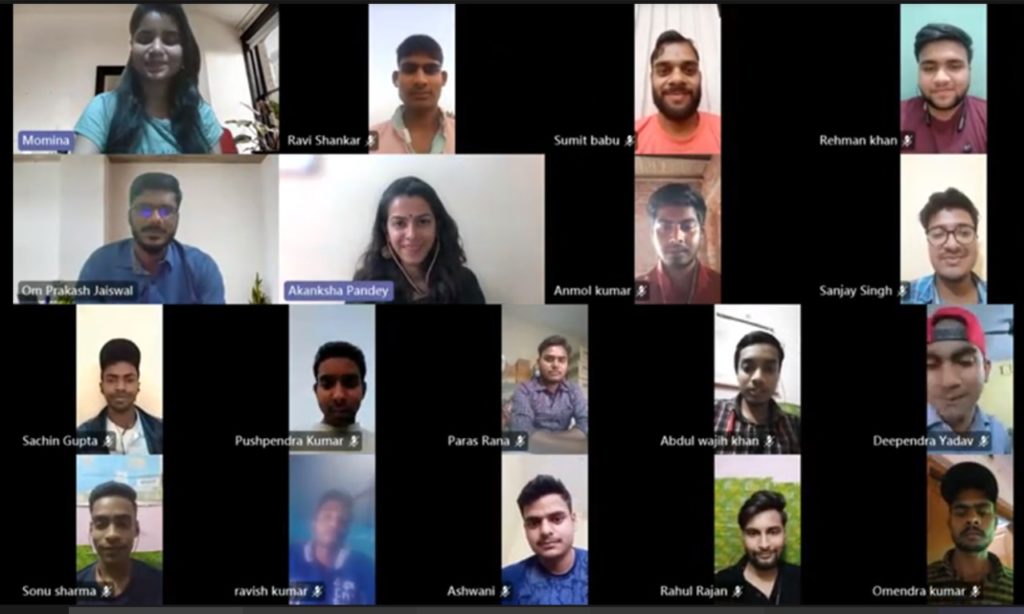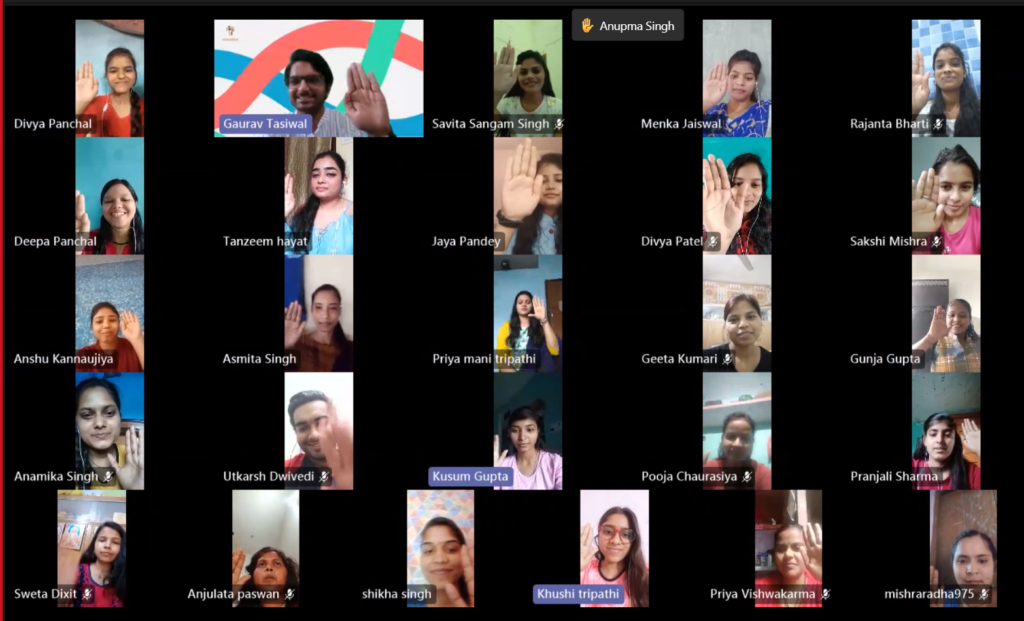Aap camera ki nazar mei hain
Covid has not only wreaked havoc for healthcare workers across the globe, but it has also left educators reeling in their classrooms. The magical power – that allowed a smile to nudge reticent students to speak, got a raised eyebrow to calm a raucous class, and somehow allowed educators to herd daydreamers back into class – was taken away from them overnight. In a virtual classroom with cameras switched off, the disappearance of students’ visual cues has tragically derailed educators’ delivery. So, how is it that a generation of Instagrammers is shying away from the camera in a classroom?
The magical power – that allowed a smile to nudge reticent students to speak, got a raised eyebrow to calm a raucous class, and somehow allowed educators to herd daydreamers back into class – was taken away from them overnight.
A recent study by Cornell confirmed several predicted reasons for students’ reluctance to switch on the camera during online classes, the most frequently reported being: concern about personal appearance. Other reasons included a concern around their physical location being visible, the feeling of everyone looking at them, being wary of distracting the class, and following gender-related social norms. And we hear them, really. How many of us are not guilty of tapping down our hair (if we have it, that is) before switching on the cameras for work meetings?
So, in a virtual classroom full of young people, how do we encourage – without requiring – camera use, such that it does not add to the already heightened distress of these times? While working with over 4500 students last year (almost all of them from disadvantaged backgrounds), our facilitators made interesting observations on virtual classroom behavior, which led them to equally creative strategies to manage it.
Let’s play
At school, remember escaping the teacher’s gaze by hiding behind the student seated in front of you, so you do not get called on to answer a question? Well, we now noticed students sometimes dropping out from an online class when called on to respond or participate in discussions.
Since building rapport in college corridors was not possible anymore, our facilitators created a ‘virtual corridor activity’ routine that begins just ahead of the official start of the class. Students joined in as and when they clicked the class link – bonding not just with the facilitator but also with their peers. Nothing better than seeing each other have some fun before ‘stepping’ into class, and that same fun facilitator cannot be all that strict during class, after all!

You still see me
While we have always been available for our students – as mentors, advocates, and guides – this year, we ensured that we were also visible in a way that represented us in the most genuine and professional manner. We saw our facilitators turn up in professional gear for even the 9:00 PM class (yes, that’s when the students were available sometimes). We hope when our students show up for their work-from-home jobs, they will not need an HR talk on professional etiquette. We kept our cameras on, stayed enthusiastic, and demonstrated our passion for showing up for them every single time. Now, we don’t know if it was just empathy, which then got some of our students to turn on their cameras, too. 🙂
A mixed bag of tools
With the suitable sensors deployed, our facilitators mentioned that they could still record boredom, indifference, or confusion in their students and calibrated their sessions accordingly (nothing escapes these committed ones, right). They dipped into their quivers to pull out tools that could win students over – from quick energizers to random polls to short recap games: anything to get the energy back on track before proceeding.
As another year of virtual learning presents itself as a reality, this tug game does not seem to be ending anytime soon for our facilitators. Have our tricks worked so far? Well, here’s a picture from one of our virtual sessions. But on a more somber note, classrooms have been somewhat of a surveillance zone, with students expected to be on their best behaviors, always attentive, and constantly engaged – we know better than to use the camera to a similar effect.
